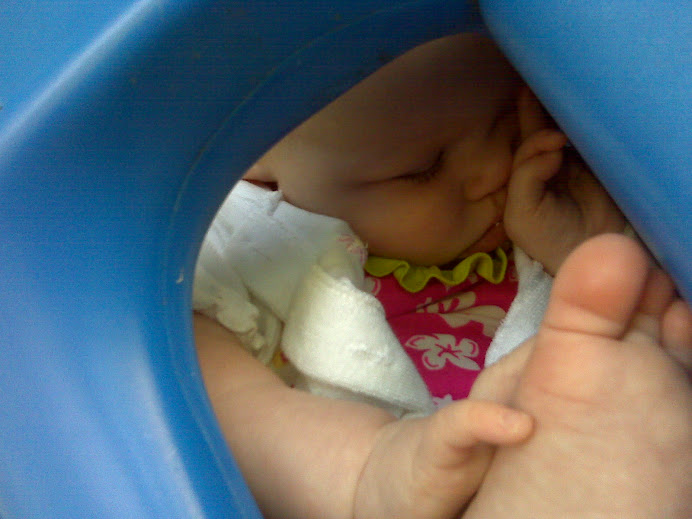Sorry, GoodReads.com, but I am finally sick of reading
quotes about grief. Like anything else, it has as many meanings as there people
struggling to define it. I may as well add my own to the cauldron.
Grief is an empty glass that cannot be filled. Turn it over
in your hands, inspect it – there are no cracks, no holes. It is solid. But
whatever you pour into it goes running right back out nonetheless. Like a cheap
magic trick from a novelty store on the shady side of town. And you think, if I
could just FILL this thing and be done with it. Put in my time. Put in my
tears. And come to some sort of end. I’m willing to put in whatever it takes. But it holds nothing.
Grief is in many ways boring. It’s repetitive. After, say,
day three, there are no surprises. Just wandering around the same old rooms,
picking the same things up, looking them over, putting them back down in the same place they were. No amount of
inspection reveals anything new or changed.
Grief is a Nirvana song. The one about feeling stupid and
contagious and even preferring to just be entertained. I am loathe to visit
dear friends in the midst of their joy – I don’t want to drip my grief on their
carpet. And I covet distraction. I long to be of the dead-eyed, cow-like masses
and mindlessly consume because to be completely frank it beats the hell out of
this utter void. My employer’s IT department can confirm this. Thank you, Arianna Huffington, for your cold comfort.
Grief is a mad professor that asks you the same questions
day after day but accepts no answers. You have an inkling that you may be in
the presence of genius – there should be SO MUCH to learn here – but the
tight-lipped professor offers no hints, no guidance, not even a syllabus. It’s
maddening. And you think “why does the administration claim this guy has so
much to teach me? Why do they revere him?” (I’m looking at you, Pema Chodron) But
you get no answers, and since they’re in charge and presumably know what
they’re doing, you’re pretty sure the failure is yours. No matter how great the
teacher, some students are incapable of learning. I have a grieving disability.
I am keenly aware that this makes me a bad Buddhist, which is pretty funny.
Leave it to me to find the guilt in the world’s only guilt-free religion.
Grief is lonely. People are very nice, very giving, very
supportive. But even the ones who have suffered the same loss or one greater haven’t
suffered your loss. At some point you’re
expected to function. Work. Parent. Engage in the world around you. I imagine the inevitable whispered assurances among colleagues when I leave a room, “It’s
okay – you know she just lost her Mom eight years ago. She’ll bounce back.” And
people don’t do or say things that make me imagine this. It’s just me in here.
If they did, I would be embarrassed, which in so many ways is the very opposite
of and infinitely better than lonely.
Grief is disturbingly sentimental. Not only am I not a person who has to excuse
themselves in the middle of a work day to cry in the restroom, but I am keenly
suspicious of those people and have to take difficult and deliberate steps to not think poorly of them. Now, a butterfly inexplicably flutters near me for two
seconds longer than seems normal, and I am sure my mother is trying to tell me
something from beyond the grave. This is particularly inconvenient since I
happen to not believe that anything exists “beyond the grave”. (Again, not the world's best Buddhist) But the after-life is a can
of worms I am not at all prepared to take a can opener to yet.
Grief was, for a brief time, convenient. All of those loved
ones who don’t quite get Depression? They get this. For a solid month it was
perfectly acceptable to call off work, day-drink wine, and watch Law & Order reruns from the pull-out sofa because it was all I was capable of. Alas
the excuse was short-lived, because modern-day Americans suffer under the
delusion that there is an expiration date on grief. (I so wish there were an expiration date on grief.)
Grief calls me a fraud. After all, I had Depression before I
was grieving and, new med experiment notwithstanding, I will more likely than
not have Depression after. (If there’s an after. Is there an after?) I can’t
help but feel that this is, in all ways, a bad fucking deal. A real lemon. At
the same time, there are so many differences between grief and Depression. I
know Depression. I KNOW that bitch. I know every card she’s gonna play before
she plays it. And above all, I know that
each spiral will come to an end. THIS IS SO IMPORTANT. In my darkest of dark
spirals I have always known that at some point – two days or five days max – I will
wake up and feel like a human being again. Smile at my kids. Blow a sales quota
out of the water. But Grief? Grief is a new player at the table, and I have NO
idea what she’s holding in her hand. I’ve got nothing left to bet. I wish she’d
just deal me out.

